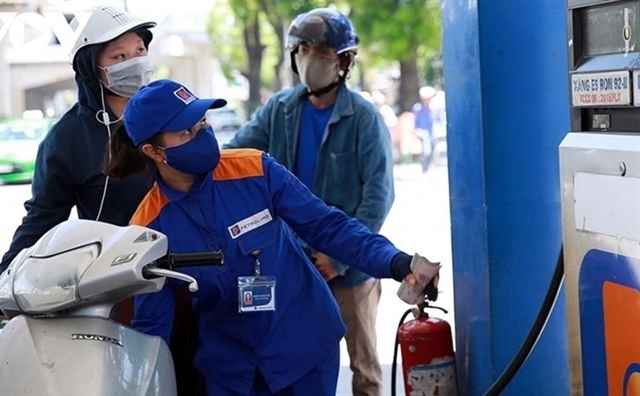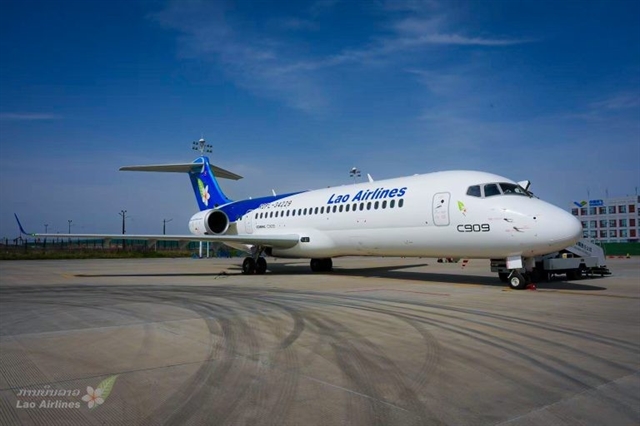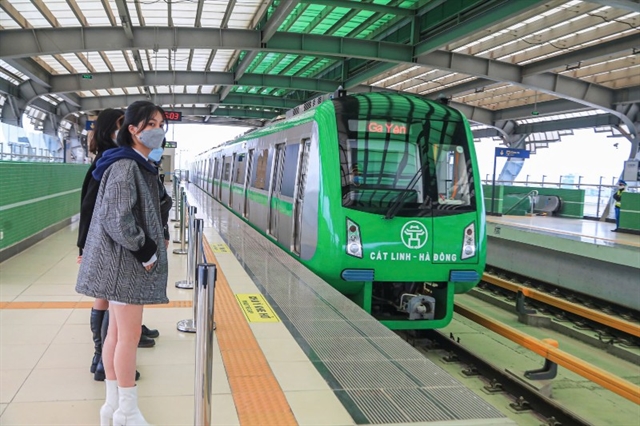 Society
Society
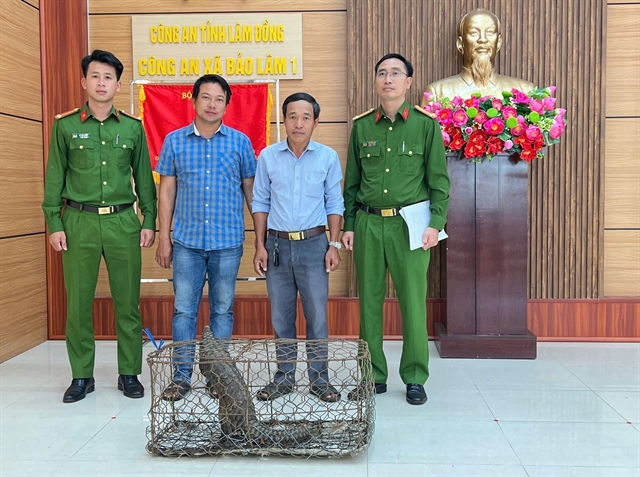
Minister of National Defence Ngô Xuân Lịch has urged agencies to seek local and foreign resources in capital and technologies to implement the first phase of a US-funded project to resolve dioxin contamination at Biên Hoà airbase in Đồng Nai Province, which is expected to begin in April.
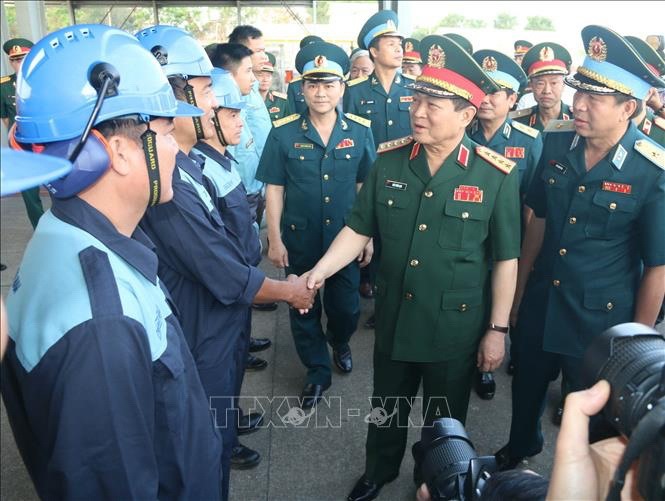 |
| Minister of National Defence Ngô Xuân Lịch visits pilots at Biên Hòa airport on Feb 15. VNA/VNS Photo Sỹ Tuyên |
HCM CITY — Minister of National Defence Ngô Xuân Lịch has urged agencies to seek local and foreign resources in capital and technologies to implement the first phase of a US-funded project to resolve dioxin contamination at Biên Hoà airbase in Đồng Nai Province, which is expected to begin in April.
Lịch was speaking yesterday during a working session with the Project Management Unit on environmental remediation of dioxin contamination at Biên Hòa airport.
Agencies have been asked to continue to implement measures to resolve the consequences of chemical toxins used by the US during the war.
In 2015, some 515,000 cubic metres of soil on 52ha of land at Biên Hòa airport contaminated by dioxin needed to be treated, according to the Ministry of Defense.
The three most polluted spots in the airbase include the southwestern area with 8ha polluted by dioxin, which is 92 times higher than the permitted standard for commercial and public land.
About 15ha of the western part of the airport is polluted by dioxin, which is 9.5 times higher than permitted standards.
Some 12ha of the southern area of the airport is polluted by dioxin, which is 700 times higher than the permitted standards for commercial and industrial land.
From 1995 to 2016, the High Command of Chemicals worked with agencies to implement an XD-1 project to clean up 100,000 cubic metres on an area of 4.3ha of dioxin-contaminated soil.
In 2016, the Command completed the XD-2 to clean up 60,000 cubic metres of dioxin-contaminated soil in the southern area of the airport.
In 2012, the Office of the Steering Committee 33, a national committee established to deal with toxic chemicals used by the US in the war in Việt Nam, also completed a project to clean up 70,000 cubic metres of dioxin on an area of more than 5ha in the western part of the airport.
The project was funded by the United Nations Development Program (UNDP) and Global Environment Fund.
In 2017 the Ministry of Defense implemented a project to clean up dioxin at Biên Hòa airport, worth VNĐ270 billion, which was sourced from the State budget.
In addition, USAID and the Air Defence-Air Force Service under the Defence Ministry on May 11 last year signed an agreement on non-refundable aid to clean dioxin-contaminated soil at Biên Hòa Airport.
The first phase of the dioxin cleanup project, which is expected to begin in April, will help reduce the risk of dioxin exposure for people living in this area.
The project costs $390 million, of which $183 million is being sourced from the US Government and the rest from reciprocal capital from Việt Nam. It is expected to be completed in 10 years.
According to Lịch only a small part of the huge volume of contaminated soil has been treated, while the policies to provide medical support for victims of toxic chemicals are still limited.
Located about 30 kilometres from HCM City, Biên Hòa, a major base for US Army, Air Force, Navy and Marine units during the war, is the largest remaining dioxin hotspot in Việt Nam.
Việt Nam launched a VNĐ270 billion ($11.8 million) programme to facilitate a massive dioxin cleanup campaign at the airport in September 2016.
The US then announced its commitment to dioxin remediation efforts in the area in anticipation of US President Donald Trump’s state visit to Việt Nam last November.
Dioxin, a highly toxic chemical contained in the defoliant, stays in the soil and at the bottom of lakes and rivers for generations.
It can enter the food chain through meat, fish and other animals, and has been found at alarmingly high levels in human breast milk.
The chemicals have been linked to cancer, birth defects and other chronic diseases, according to Việt Nam Red Cross.
The US has cooperated with Việt Nam in solving humanitarian issues and war legacies since 2000, including removing unexploded materials, identifying remains of missing soldiers and implementing the environmental remediation of dioxin contamination. — VNS



